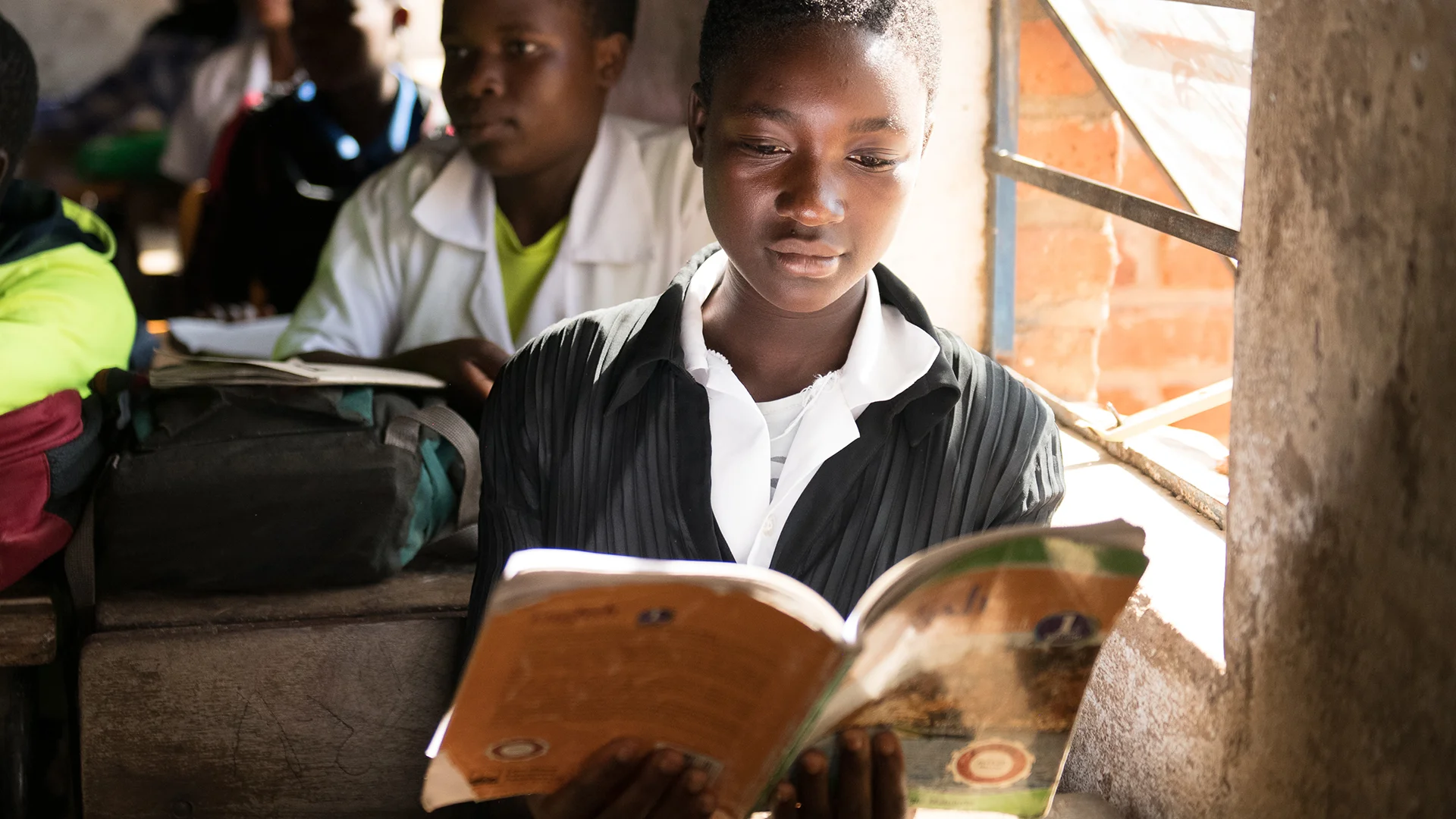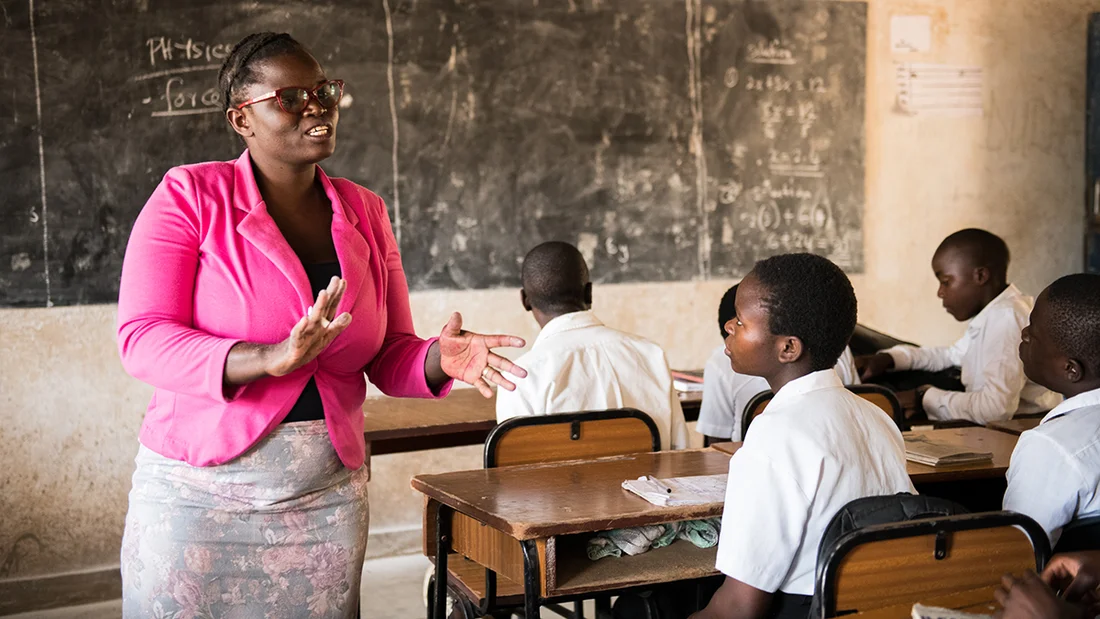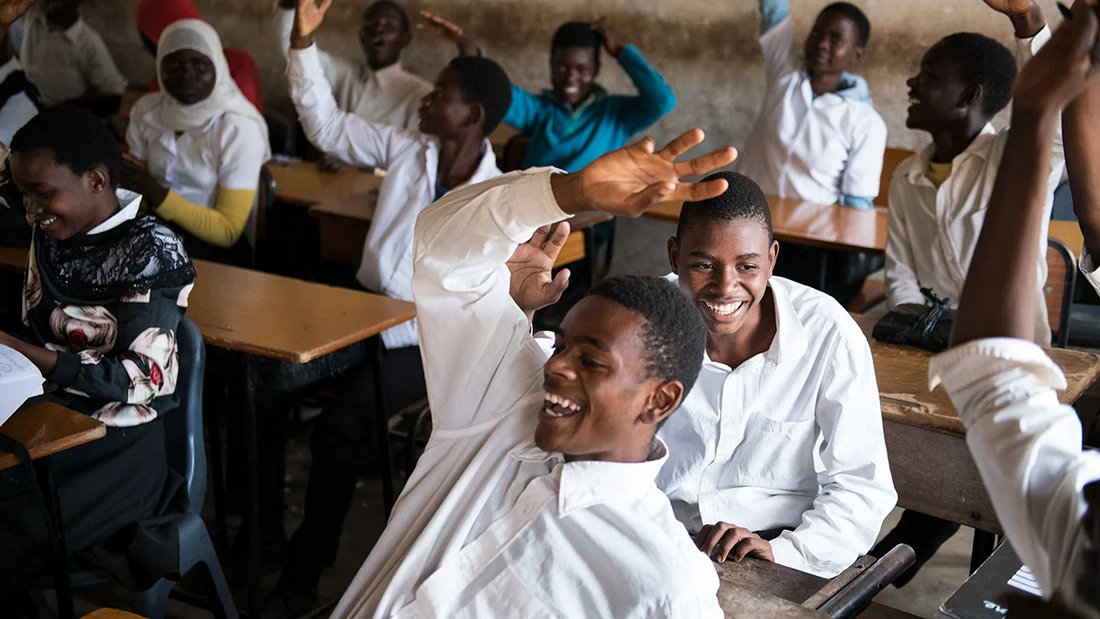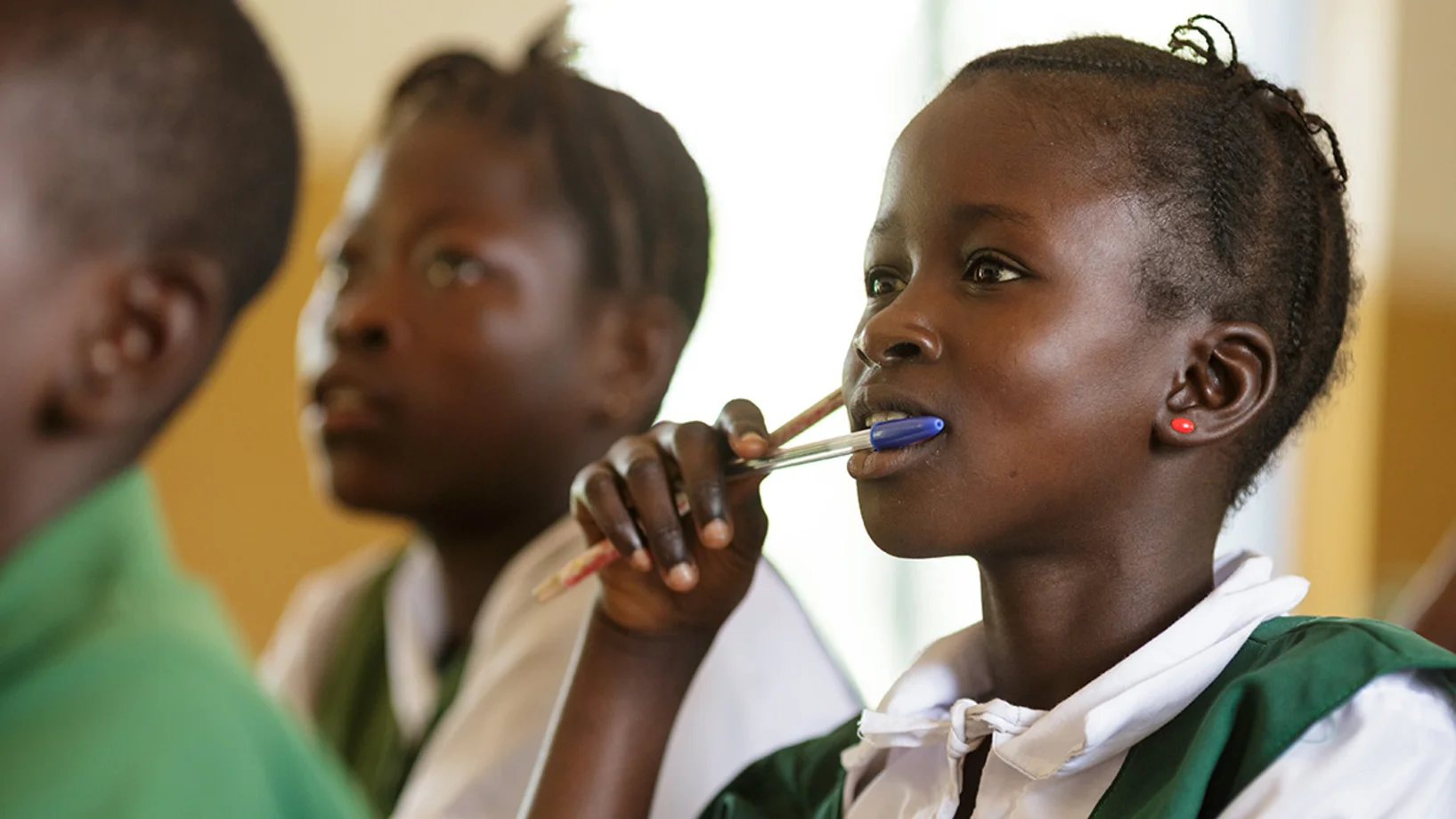In Malawi, a quality school education is not something to be taken for granted. More than half of learners cannot read properly, and only a small proportion of children complete secondary-level schooling. One of the main reasons for this is the lack of training for teaching staff. UNICEF’s support makes the ongoing training of teachers in Malawi possible.
The situation
Although Malawi has made considerable progress in its educational sector in the last ten years, educational quality remains a major issue. Many children do not finish secondary school (in 2023 only 47%) and very few have basic reading skills after completing primary school. One of the main reasons for this educational crisis is insufficient competence among teaching staff. Many teachers lack formal training or meet only the minimum qualification standards. In addition to the poorly developed nationwide management of teaching staff and institutional capacity constraints, factors such as widespread poverty and sociocultural norms are exacerbating the situation. As a result, investment in teacher training is rare.
What UNICEF has achieved thanks to your help
The “Malawi Teacher Effectiveness Enhancement Programme” was designed to improve the quality of instruction through further vocational development for teachers, so as to provide all children – including girls and children with disabilities – with the opportunity for a good education. Between 2020 and 2023, significant progress in teacher training and development was made through the support of UNICEF Switzerland and Liechtenstein. 1,680 primary school teachers and 760 secondary school teachers from 96 schools in the district of Chiradzulu received training in important areas such as inclusive education, pedagogical approaches and classroom management. This training improved the educational results for over 33,000 schoolchildren, particularly for girls and children with disabilities.
In addition, a mentoring program was set up to provide support to more than 13,000 teachers. This program promoted the exchange of experiences and resources among teachers and helped to increase the quality of instruction. Teachers also had access to digital educational programs, which helped to improve teacher training in the long term.
These comprehensive measures show how targeted support and cooperation brings long-term improvement to the educational opportunities for children in Chiradzulu. Thanks to your help, UNICEF was able to achieve these successes and exert a positive influence on the educational community.





